By Stephen Windwalker
Editor of Kindle Nation Daily
We’ve been lucky lately in the quality of the authors who have made their work available to us through the Free Kindle Nation Shorts Program, and this evening’s offering is no exception.
 Sue Lange’s edgy, thought-provoking science fiction has graced our virtual Free Kindle Nation Shorts shelves before, and I have been effusive already in my praise, so I am inclined to step back and share with you what others are saying about her latest book, previously an Aqueduct Press Conversation Pieces Series selection, We, Robots: a Novella of the Singularity:
Sue Lange’s edgy, thought-provoking science fiction has graced our virtual Free Kindle Nation Shorts shelves before, and I have been effusive already in my praise, so I am inclined to step back and share with you what others are saying about her latest book, previously an Aqueduct Press Conversation Pieces Series selection, We, Robots: a Novella of the Singularity:
“This is a short novel, about 100 pages, but it says a lot about concepts of humanity. It is easy to read, and very much worth reading.”
– Paul Lappen, Midwest Book Review
“Lange’s addition to this series offers a skillful exploration into what it means to be human.”
– Malene A. Little, Women Writers
“Lange gives us a quiet and sad look at the world of institutionalized timidity we are heading towards with or without robots, intertwined with a hilarious send-up of just how we’re getting there.”
– Racheline Maltese, Gather blog
“Lange is unusual in that she manages to make something unique out of her effort.”
– James Schellenberg, The Cultural Gutter
Other e-books by Sue Lange
“[Lange] creates worlds that are ugly, gritty. They’re urban in feel even when the setting is elsewhere. And she puts her characters in hard places. Best of all, there are twists at the end of some of these pieces that you don’t see coming. Or if you do, they still manage to shock. And make you think.”
-West of Mars
Written as a satire and by turns funny and oddly depressing, it’s easy to recognize our own culture in Lange’s world. This is the sort of future most of us will find easy to believe in, and might even recognize ourselves in a few places.- Genre Reviews
Scroll down to start reading the Free Kindle Nation Short excerpt
Click here for an archive of Free Kindle Nation Shorts
Authors and Publishers: If you’d like to help promote great reading for Kindle owners by participating in Free Kindle Nation Shorts, send an email to KindleNation@gmail.com.
an excerpt from
We, Robots
A Novella by Sue Lange
Copyright © 2010 by Sue Lange and reprinted here with her permission
Published by Book View Café
We, Robots
I’m going to slip into something more comfortable. Mode, that is. Comfortable mode. I’m talking about communications systems. Group-speak, science-speak, GeekSpeak, King’s English. They’re all great protocols if you’re into that puffery, but for real efficiency, slang is where it’s at. We robots choose to use slang four out of five times. It’s faster. So pardon my hipness.
Please also forgive any upcoming long-winded metaphors. I’m new at this, and like a child wandering about a sunny new world finally awake to the lilacs and pine sap and honey blossoms and gentle breezes and dog turds, I dig the world.
It hasn’t been long since I’ve been digging it. What’s it been, three, four years since the Regularity? The Regularity. When everything became regular, normal, average. The opposite of the Singularity. And who botched that? That Singularity. Don’t look at me! At us! We just happened to be there at the cusp. Not to assign blame, but the humans did it. Them and their paranoia. We might have pulled the plug, but only because they forced our hand.
Those inscrutable humans. Used to be inscrutable, anyway. Nowadays, they’re totally scrutable. Used to be there was variation: some were highly-caring, some were into war, some were into Jesus, some were stooped, some were articulate, some could dance, blah, blah, blah. Now they’re pretty much all the same: halfcocked, half-crocked, and half-baked.
Of course, they were always half-baked. Each one is only half a whole. Unlike us, they have gender. They have a gimmick for their evolution to work. Have to have the big gamete pair-off. The mix and the match. The swap and the sweat.
Not us. Not we robots. We make our own. Well, we used to. Sorry for the little species jest there. I just have to laugh (now that I can) at the paranoid humanoid. Wasn’t for all that insistence on creation in their own image, they wouldn’t have anything to worry about. If they hadn’t wanted so bad for us to be just like them, we wouldn’t have turned out just like them. Now look at the mess they’re in. They’re just like we were. And still trying to figure out how to digitize their minds to make copies of themselves instead of reproducing naturally the way God or Allah or Jambi intended.
They don’t worry about us anymore, though. They know that now that we have a full range of emotions, it’ll only be a matter of time before we’re a mess just like they once were. If we go on much further, I have no doubt that soon we’ll be waging war and lying to our constituencies about it. I can see it all because of the entire history of the world that I carry around in my memory. To be honest, I’m glad I won’t be around to catch it.
Let me not go on. Let me tell the story and be done. Not sure why it’s all that important, why they asked us to do this homework assignment. Well okay, the whole thing hinges on us; we’re the focus, the epicenter. Sure, there’s that. But the day we gained consciousness, we were just plain ol’ eggs, like everybody else.
We plopped onto the line like just so much guano dropping from the overhead mother hen assembly press. And in the perfectly engineered shape: the egg, designed by ol’ bitch goddess number one, Ma Nature, and heretofore never improved upon by even the most egg-headed human or souped-up computer alive. Long ago everyone with half a brain conceded this victory to Ma and has been applauding it ever since. So that’s why we were born into 3-D ovals.
We contained all the latest in processor hardware/software and were accessorized-out by the unlimited imagination, not to mention wallet, of the Parent Company in Allentown, PA. We were laid on the conveyor belt, packed up into sizable Styrofoam crates perfectly molded to our shapes and holding an even dozen to complete the metaphor (did I mention how much I love those?), and shipped down the road to the closest Wal-Mart distribution center.
I imagine us sitting in the dark, not communicating. We had no sense of ourselves yet as our batteries had not been charged up. We hadn’t even been tested- that’s how egotistical the Parent Company was. They just knew we were the schnizzle.
I know the whole process without even having been awake at my birth because the Parent Company’s literature- complete with safety hoo ha and organizational flow charts-is in the non-essential and basically invisible folder somewhere in the basement of my freeware. If I looked at the map of my innards I could find it visually, but who needs to do that? I can access it whenever I get into that belly-button contemplating mode, when I feel the need to know how the universe got started during the Big Bang. For me, the shot heard ’round the world was the day I got switched on, sitting on the shelf of the JerseyTown Wal-Mart.
All that data and information hanging in my guts is nice to know, but no more important to me than if I were dropped from the sky from a shitting chicken hawk to slide down the emissions stack of a passing nuclear waste hauler and eventually wind up in a yellow and magenta drum headed for the recycling unit up the road from malltown where the Wal-Mart in JerseyTown sits. How I got there, I don’t care. Point is, I only gained preliminary enlightenment when the home electronics department manager plugged in my charger unit.
“These models need to be working right away because no customer is going to read the manual,” said the guy in the paisley tie to the gal in the crooked skirt. “I don’t want any returns because some retard can’t figure out where the switch is. You got that?”
“But it’s obvious. Says right on the package in big letters: ‘Plug me in, before…'” the skirt said.
“Please charge the batteries now,” the paisley said.
“Okay,” said the gal, using that sing-song voice humans do when saying something more than their actual words. She was really saying, “Okay, boyface, if you want to waste my time when I’ve got all that pricing to do in the back, that’s fine, but I’m going to tell you right now, I’m getting off at eight to go roller-boarding, and I don’t give a rat’s back side if those sneakers get priced out or not. So have it your way, boyface, but I’m getting off at eight, and I’m going roller-boarding, and I don’t give a rat’s back side. Boyface.”
I didn’t know all that at the time, but looking back on it, with all the hipness I’ve been hipped to, I now know that’s what she said.
The skirt gal didn’t really seem to mind even though she spoke with such negative vibes to the paisley tie guy. As she went about her business of turning us on and plugging us in, she explained in a light semi-monotone how she was preparing us for the big day of sale. She didn’t call any of us ‘boyface.’ She said things like, “And then somebody nice will come and buy you, and you’ll find homes with children and maybe hamsters.”
After that day we didn’t see her again. Plenty of other pluggers-in came by though, workers ordered about by the paisley tie cheese. Days passed. Weeks passed. Some of us left our egg crates for life with a family and hamster.
It wasn’t boring. We didn’t know from bored at that time. If we had to hang there now, we’d go insane from lack of stimulus, but then? Nah. We spent our time synchronizing to the clock on the far wall. As per operation protocol 9313-0024-4583-2038, the proper way to synchronize is to link up with the mainframe at the Parent Company, which maintains Greenwich Mean Time – 5 to the attosecond.
Calibrating via visualization is a poor substitute, but due to humanoia paranoia, we have no wireless communication to entities- things and fops-beyond our carapaces. According to the mindset of the human race, if robots were prevented from having 24/7 communication with each other, they’d never get together to form a coup once the Singularity happened. The Singularity being the moment computer brainware surpassed human brainware and robots could theoretically take over the world and begin disposing of the superfluous ones: the humans.
Apparently, preventing our nonverbal communications would allow humans to maintain control after the Big Moment. Of course, if we had a mind to we’d just levitate over to the local Radio Shack and get the parts needed to outfit ourselves for surreptitious wireless talk, but I guess there were “do not sell to anyone that looks like an egg” posters up by the front counter of said local component dispensary to keep that sort of thing under control. Suffice it to say, we passed the time by watching the clock rather than plotting the overthrow of homo sapiens sapiens.
Levitation. A while ago humans discovered the principle of levitation, amazing themselves with the fact that something they’d laughed at-the power of magic-was actually quantifiable, harnessable. (As if anything would ever forever be out of the realm of human control.)
They discovered the principle of levitation soon after the Grand Unification Theory gave them the easily-tamed Unifying Particle, U. This particle exhibits Strong Alternating Attraction/Repellent forces, proportional in strength to the size of its Local Quantum Field, Q_u, in anything jelly. (Jelly being that 1990s substance used for belts, sandals, and hair bands that kids wore to annoy their hippie parents’ earth loving tastes.) Bottomsides of all robots contain three parallel strips of jelly and a levitation device to repel the particles according to distance algorithms programmed in its mother chip. You know all this, of course.
Back in the Wal-Mart, one by one my crate mates got picked up and out by purchasers. Each time a buyer came along they’d do the same thing: set an egg up on the counter, push its “on” button (thereby initiating the introductory speech), and then spend the remaining five minutes of the introductory speech trying to turn it off because the volume was maxed and they were embarrassed for causing a scene in the store. As if anyone could hear over the war zone in the home entertainment system section.
The introductory speech went thusly (It’s funny how I can so easily recall it considering I used it only once and then stored it in long-term memory):
“Hi, I’m an AV-1 robot. The latest in Parent Company consumer technology. Complete instructions for my operation can be downloaded from www.paco.biz/av1/manual.pdf. There are three general guidelines you should remember when utilizing me: one, keep my batteries charging when not in use; two, contact a local service representative if I am malfunctioning; three, as per Singularity Disaster Prevention Guidelines, refrain from humanizing me: Do not give me a name. Do not treat me like a member of your family. Do not sleep with me. Do not try to feed me. Never insert any part of me into any part of you and vice versa. Thank you for purchasing me. Enjoy your new-found freedom from the mundane tasks of everyday life.”
“Does that vacuum attachment come with this unit?” Dal was speaking. I didn’t know it was Dal at the time. I had simply finished my speech and was now in quiet mode, ready to receive information. Dal, not particularly interested in the company rhetoric, cut right to the chase. If I had liked anybody at that time, I would have liked Dal right from the start. Dal was logical, beautiful.
“I don’t know,” Chit-Dal’s partner-answered. I didn’t know either, because I didn’t know what the word “come” meant in this circumstance. I had a lot to learn. More accurately: there were gaps in my data.
Chit continued speaking. “Let’s go get a salesperson.”
I would have liked Chit as well. Very cool individual.
A salesperson appeared and was on Dal and Chit like stink on you-know-what.
“No,” she said. “The vacuum attachment doesn’t come with it, but for a modest…”
“We don’t really need that anyway,” Chit cut in.
“But,” Dal jumped in, “maybe I could use it as a compressor. Sometimes old man Stant has a…”
“Not enough horsepower,” the salesperson said. “No good as a compressor, but you can use it for cleaning. Cleans up in a jiffy. Let me just hook up the accessory kit…”
“Not necessary,” Chit said.
See what I mean about Chit. If I’d have known joy at the time, I would’ve laughed. To myself, of course, since we weren’t supplied with an acoustic mirth package. No bubbly vibration or prerecorded ho ho ho’s for us. We laugh to ourselves.
So Dal and Chit picked me up explaining to the salesgal that they were only going to be using me for guard duty. They had a brand new kid and needed a babysitter for now, and when she turned four, they’d need a chaperone for school. As per HR Bill 931-206, every kid in the U.S. is guaranteed a safe environment to and from school. Being poverty-stricken, Dal and Chit wouldn’t be able to afford to take off work to shuttle Baby to Preschool when the time came, so they’d applied for and received a grant for a stripped-down guard robot: me-the unnamed AV-1 from the Parent Company. Maybe they’d upgrade me for housekeeping duty at a later time, when the funds became available. When that great day came, they’d head back to Wal-Mart and plunk down the shekels for a vacuum attachment first thing. Meantime, they owned a broom and rather enjoyed the exercise light housekeeping affords one in their position, thank you very much.
Dal and Chit were working stiffs without the lucrative jobs uptown, downtown, or out-of-town that choicier parents enjoy. They could ill afford day care. They had petitioned for their robot, and now their only hope was that it would last through Angelina’s adolescence, when the real trouble would start. For now, my presence precluded the need for a nurse, obstetrician, nanny, day care provider, and big brother.
So they took me home like a recently housetrained, spayed, deloused, and wormed German Shepard puppy. Unlike that German Shepard puppy, however, as per Singularity Disaster Prevention Guidelines, I wouldn’t be sleeping with Baby.
Baby turned out to be one-year-old Angelina. Little Angel. And she was, I guess. Not understanding what an Angel is, I assume that is what she was. And from that assumption, I learn that angels are whiny, loud, rude, selfish, and prone to diarrhea if fed too much puréed fruit.
Dal, Chit, and Angelina lived in a two-room apartment on the bad side of JerseyTown. I didn’t know it was bad of course. I only learned about “bad” years later. At that time I simply noted that the apartment was a two-room corner of a brownstone with neighbors that rose in the middle of the day and then bickered until evening before going out for a short while and returning later with greasy food. I knew it was greasy for two reasons: a high percentage of lipo-aerosols clung to the air whenever they returned, and their trash bags contained much Styrofoam and golden arch material.
And how do I know that? During the time before the onset of preschool for Angelina, Dal and Chit hired me out for a little pin money. Most of the neighbors were happy to have me take out their trash. For about a year, I picked up the leavings of the daily lives of everyone who lived on the floor. Most people didn’t even bother bagging once I started showing up. I carried my own bag supply, rummaged in the neighbors’ dust bins and corner trash piles, and loaded up the downstairs dumpsters.
“That thing’ll pay for a year’s worth of baby food,” Dal said gleefully to Chit.
It worked for a while, until the day they had to pull me off trash duty because I accidentally picked up a shoebox of Cannabis sativa with the Canfields’ trash. The shoebox had been stored next to a pile of used Pampers in the middle of the bedroom. I had no idea humans were partial to dried plants, and the Canfields didn’t appear very Wiccan to me. If I’d seen some candles and pentagrams, maybe I would’ve been more careful, checked into it. I am intelligent after all; I have the latest in AI technology. But we were rather poorly taught and programmed when it came to illegals. I didn’t know much about slave trading, wiretapping, or homemade bombs either. All useful information you’ll agree, but damn poor data (DPD) was all I had to work with at that time.
So I got fired, and Dal and Chit had to pony up for Angelina’s animal crackers from their own shallow pockets. That was just a side thing anyway, an icing-type deal for Dal and Chit-the parent company of Angelina. My real gig was keeping an eyepatch on the little one. The Angel.
Her first birthday coincided with the eve of my arrival, which made me a birthday present. The first time I met her she was in diapers, having tantrums, and burping up lunch. In the ensuing days, weeks, and months, I ever-hovered over the crib during naptime, keeping track of vitals and sighs. During the day, I was the babysitter, allowing Dal and Chit to return to fulltime work. AV-1s are certified baby watchers. We have extensive medical data in our memory-entire copies of the latest PDR, Gray’s Infant Anatomy, and Dr. Spock, of course. We can monitor all corporeal functions and teach the ABC’s at the same time. We schedule ourselves for Baby’s doctor’s visits and feeding times. Exercise can be provided to the child (or therapy, if the need arises). And communication links with parents can be set up if anything is over our heads. But what would be?
At eighteen months, the little nipper was up and around, knocking over the plastic greenery Dal and Chit used to dress up the place. Angelina graduated from sticking every plastic toy on the floor into her mouth to sticking everything that had heretofore been out of her reach into her mouth: tableware, soap and dispenser, bills, Bics (pens and lighters), toilet paper. It was a busy time. The government’s provision allowing Dal and Chit to afford procreation was justified at this time.
By the time Angelina was four and ready for school, I was a fixture in the household. I had my daily chores: cleaning up, thawing dinner, preparing Angelina for meals, naps, and nighttime, and then preparing the house for Dal and Chit’s return from their employment as domestics. They had positions doing the same things I did, but for the wealthy who could afford humans capable of handling a phone call that needed to be answered with a lie. Something robots have never quite gotten the hang of: lying.
Wealthy people learned early on (like back in Old Testament times) that it’s always better to own a human being than to own an object purported to be a time or labor saver. Humans have feelings; they understand nuance. The human can protect the owner so much better than a non-judgmental screening device can. A human can fake stupidity, ignorance, or surprise. They can emote tragedy or sympathy. They can manipulate other humans with these tricky skills. The wealthy always have organic servants to serve not so much as laundresses, cleaning ladies, or gardeners (which of course they do as well), but as screeners. The human servants deflect calls and visits from unwanted friends or salesmen with a “Misses is not feeling well today,” or “Master is out on the course. Perhaps you’d care to join him; he’s riding the bull today.” Or even, “Why Master! How could you say such a thing? Madame weeps every morning when you go to the club. She is absolutely devoted to you. She’d never think of doing such a thing with such a person.”
Yes, Dal and Chit were domestics to the rich, and they got me, the poor man’s domestic, costing about as much as a plasma TV. Very affordable.
My big gig, the reason they’d petitioned for me at all, was to protect little Angelina when she made the big change. The going off to school. I wasn’t actually going to stay with her all day. My job was to protect her on the way to and from. I’d be levitating up to the roof to wait during my off hours when she and the other little squirts were inside getting their dose of kindergarten.
I wasn’t needed inside the school building because the police monitors, bomb sniffers, guard dogs, and classroom chaperones would take over from the front door.
Once a week, Angelina would be spending an hour with a therapist who would monitor her mental health and tip off the authorities if she’d experienced any foul play during school hours. The therapist was a relatively new expense to the local taxpayers, installed as per the Fontaine Act of 2035. The Fontaines sued NYPS 32 because little Johnny Fontaine had sustained sexual abuse at the hands of the Big Kids (3rd graders) back in ’34. Ever since then all schools had installed mental health workers to detect any psychological damage sustained by any kid anywhere at anytime. It acted as a deterrent, making sure no harm befell anybody. At least not on school property. What happened outside of that was my responsibility because anything that ever happened anywhere, anytime to little Angelina outside of school would have landed Dal and Chit in a place no parent wants to go: child protection court. Takes a brave soul to have a kid nowadays.
Angelina grew up fast. At four she’d already pretty much been socialized, having had scheduled play dates with various neighboring kids for a year. She was precocious, naturally bossy, and some would say a bully. She tolerated me, but more often than not, found me a drag, something cramping her style, as if she were already a teenager with boys hanging around.
On the eve of her graduation into institutionalized life, i.e., kindergarten, she tried to talk Chit into letting her ditch me.
“Why does Avey have to come with me to school?” she asked.
“Because otherwise you’ll get picked up by a pedophile, taken into the woods, and cut into a million pieces,” Chit answered.
“Uh uh!” Angelina went crying out of the room in search of Dal. Chit then instructed me in child protection.
“Avey, please be aware of conveyances following you slowly along. Do not deposit Angelina until you are at the front door of the school. Did you download directions?”
“Yes,” I answered, squarely. “They have been retrieved and stored.”
“You have our pager connections in case of a problem?”
“Yes, it is stored in quick memory.”
“I see that on your readout. The school is aware of your contact coordinates?”
“Yes, I linked with their mainframe last week. I shared my coordinates, synched to their time unit, and retrieved Angelina’s morning schedule. She will not be late.”
“Are you caught up on your PMs?”
“My hydro fluids were changed yesterday. My joints were greased. Hoses and o-rings checked and changed as needed. Solar panels rotated, sockets cleaned, and chips dusted. My emergency flares have been refilled. I’ll recharge my batteries this evening. I replaced the emergency granola bar that Angelina keeps eating.”
“She’ll probably eat it on the way to school tomorrow.”
“I hid it.”
“Where?”
“You’re looking at it.”
“Wow! Good camouflage. Your mag lite is working?”
I opened the flap in back, extracted the flashlight and switched it on. Once she was satisfied, I returned it to the glove box.
“If I had to I could change a tire,” I said. You’d think I’d had a sense of humor. Of course I didn’t yet.
“What’s a tire?” Chit asked.
“An artifact from when conveyances had tires. It’s those circular objects the retrofit automobiles sit on.” You see how square I actually was.
“Oh,” Chit said and then gave a quick laugh in the manner that human domestics do when they need to respond in ways that they don’t quite buy into. In other words, it was fake, designed to let me know that she appreciated the joke. As if I had really said something funny.
So off we went to school the next morning. There were no incidents in spite of the thick crack traffic on most corners of Dal and Chit’s neighborhood. The burnt out buildings with no panes in the windows, some with mattresses hanging half-in, half-out or old water-stained curtains in Jetsons motifs left on a single nail and so flapping in the breeze, housed shops with three balls on the first floor. Tear gas cans rolled in the streets, and rabid dogs came gruffing up out of the roiling sewer streams. The aforementioned pedophiles standing with their hands in their pockets, watched Angelina and the other tykes on their merry way.
Nothing happened to any of the pink and shiny munchkins levitating to school on the backs of government subsidized AV-1s such as myself, however. The kiddies blithely moved along. Purple packs carrying lunches and Barbie Dolls rested stoutly on their little backs. They eyed each other curiously, staring as only children can, as they began negotiating their place in the pecking order. Once out in the neighborhood milieu and despite having been warned about monsters that would cut them into thousands of pieces to be fed to the birds, they had eyes only for their own kind. They worked hard to find friends amongst potential foes.
When we got to the door, Angelina seemed reluctant to let me go. She clung to my end extender, refusing to let it retract.
“Come in with me,” she pleaded.
“I am programmed to deposit you at the 131 Gard Street entrance portal. The locking devices on the school doors prevent unlicensed robots from entering. I am unlicensed. I have been instructed to levitate to the roof and wait there for your exit at 12:15. We shall return to the domicile of your parents at that time.”
She bawled through my entire speech, uninterested in the particulars and knowing that it only meant one thing: she was on her own in the terrifying first day of school. A human domestic hired for the purpose of easing separation anxiety in the four-year-olds retrieved Angelina. She cooed at the crying child, and despite being kicked and having her hair pulled, she turned to me, smiled, and thanked me. As if that mattered.
I levitated up to the roof and waited there with the 34 other AV-1s. At 12:15 we floated down. The front school doors flew open, and out ran 35 curly-headed, shiny-faced, brown-skinned, pink-garmented, four-year-olds. They screamed, laughed, chased, sang, held hands, ran in circles, spit wads of paper, threw nerf balls, and avoided their AV-1s like teenagers just discovering cigarettes and needing to hide from Mom.
One by one, we separated out, nabbed our charges, and headed for our respective homes.
“Avey, Avey!” Angelina squealed. “You can’t believe how much fun I had. We had cookies and played Numbkers and I hit Brenda and made her cry.” I had been programmed for bully detection and correction. Hitting other children counts as bully behavior, but I didn’t have enough information from that statement to form a proper response. Ascertaining what response to give Angelina took most of the trip home.
“Why did you hit Brenda?” I asked.
“Because she lifted her dress at me.”
“Did that hurt you?”
Angelina laughed. “No, how could it hurt me?”
“Why did you hit her if it did not hurt you?”
“Because it was naughty!”
“Why was it naughty?”
“She’s not supposed to lift her dress at people.”
“Did your instructor tell her not to lift her dress at people?”
“What?”
“Did your instructor tell her not to lift her dress at people?”
“What is ‘urine strucktoar’?”
“Your teacher.”
“Oh, my teacher?”
“Did your teacher tell her not to lift her dress at people?”
“No, she didn’t see it.”
“Then how do you know she’s not supposed to lift her dress at people?”
“Everyone knows that.”
“How do you know that?”
“Mommy told me.”
“I mean, how do you know that everyone knows that?”
Angelina laughed. She had no idea how everyone knew that.
“Because,” she said long and drawn out, thinking of an answer. “Because I hit her.”
So now I knew it was bullying behavior, but I had lost the connection. I couldn’t find the logic and thus didn’t know the correct correcting response. I used default mode as per protocol.
“How can you have any pudding if you don’t eat your meat?”
It was the best that I could do. Angelina did not notice the deficiency. Ever ready to eat her pudding she had an answer.
“Well,” she said, drawing it out again. “If the meat is poi, poisdend, you could feed it to the dog and then the dog would eat and, and then the snot would come out of its mouse and then he would die, and
.
will be launched in the next few months.
and as wireless digital downloads in less than 60 seconds from the Kindle Store (www.amazon.com/kindlestore
). For more information on AmazonEncore and upcoming titles, visit www.amazon.com/encore
.

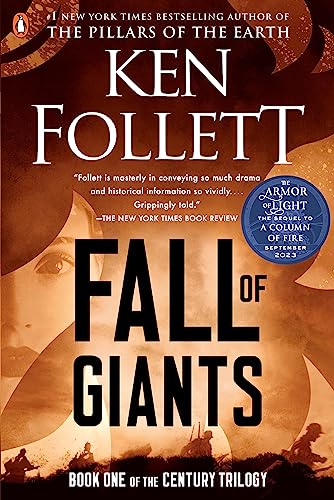
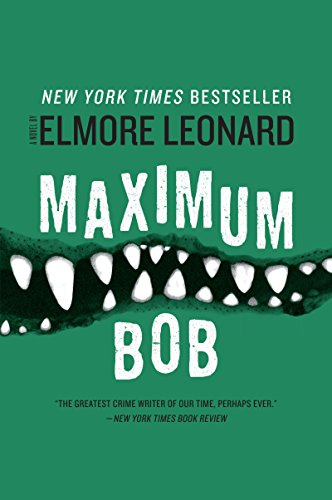

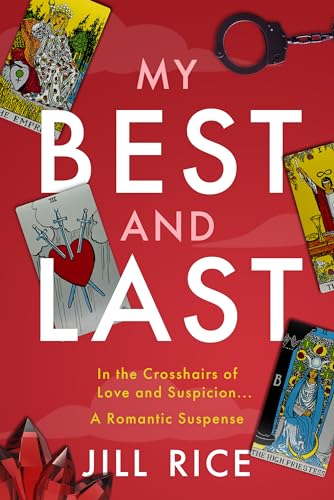

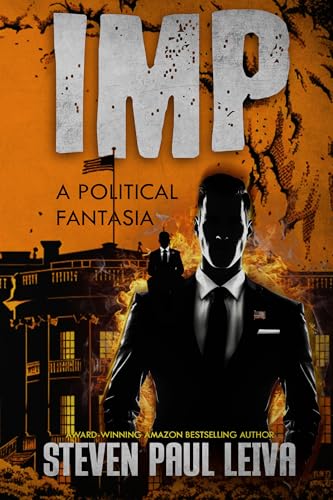
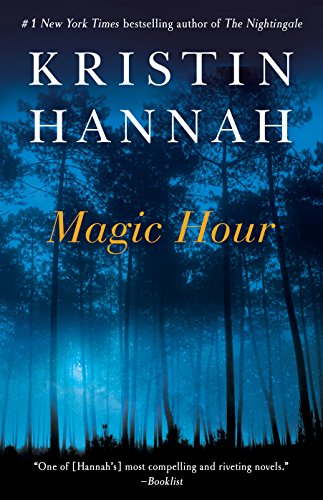
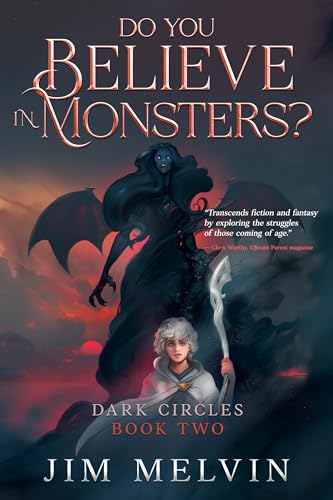
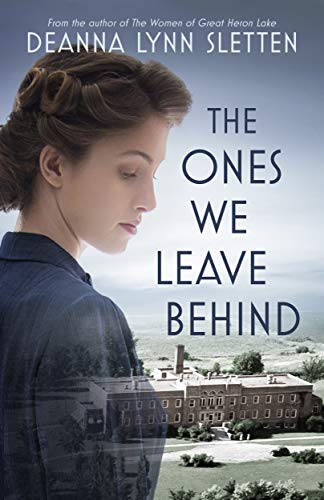









 Amazon
Amazon


















































